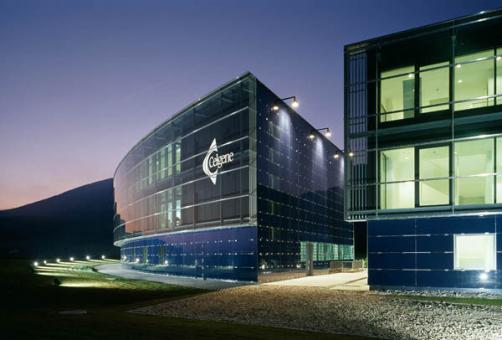
NICE won’t back Revlimid in new setting
pharmafile | July 31, 2014 | News story | Medical Communications, Sales and Marketing | Celgene, NICE, Revlimid, Thalidomide, multiple myeloma
NICE has once again said it does not think that Celgene’s rare cancer drug Revlimid should be used on the NHS for certain patients despite new data coming from the firm.
The watchdog has been consulting again on the use of Revlimid (lenalidomide) for treating the blood cancer multiple myeloma in patients who have already been given Janssen’s Velcade (bortezomib).
The drug is currently recommended by NICE in combination with dexamethasone as a possible treatment for patients with multiple myeloma (MM) who have already had at least two other treatments.
NICE recommended in March this year that Velcade should be used in combination with dexamethasone, or with dexamethasone and Celgene’s other MM drug Thalidomide (thalidomide), in previously-untreated patients who are eligible for high-dose chemotherapy with a bone marrow transplant.
This pushed Velcade up the treatment pathway as before this recommendation, Thalidomide was preferred as the only drug for the condition to be used in a first-line setting.
In fact the recent recommendation of NICE for the NHS to fund Velcade in a new setting prompted NICE to look again at the potential of using Revlimid after patients had taken Janssen’s drug.
This appraisal therefore deals with the use of Revlimid as an option for patients who are unable to receive its other drug Thalidomide, and for whom bone marrow transplantation is not appropriate.
It is also aimed at those patients who have received first-line treatment with Velcade under NICE’s new recommendation and whose disease has relapsed after receiving the treatment.
Celgene had hoped that, as Janssen had been bumped up the treatment pathway, it could as well, and it was in fact Celgene who promoted this new review by NICE.
But despite new data and prompting from Celgene, the watchdog’s committee says in new draft guidance published today that it still does not recommend the drug for this indication.
Not value for money for NHS
Commenting on the draft guidance Sir Andrew Dillon, NICE’s chief executive, says: “In the original guidance published in 2009, NICE recommended lenalidomide as treatment option for multiple myeloma in people who have received two or more prior therapies.
“This recommendation has not changed and patients at that stage in the treatment pathway will still be able to receive lenalidomide through the NHS.”
Sir Andrew explains that: “We are now looking specifically at how well lenalidomide works after someone has received bortezomib, and whether it provides value for money. Since 2009, no clinical studies have been undertaken specifically looking at how well lenalidomide works compared with other treatments for these patients. Following the publication of draft recommendations earlier this year, the manufacturer of lenalidomide provided the appraisal committee with further evidence and analyses to consider.
“However, these further data did not lessen the uncertainty in the results presented because there is very little evidence in the population we are currently appraising this drug for, and the analyses indicate that lenalidomide is not good use of NHS resources.”
The drug comes in a pill form and is available as a 21-capsule pack. The cost per pack varies according to capsule size: £3,570 for the smallest 5mg dose and £4,368 for the highest 25mg, with most patients starting on a daily dose of the highest 25mg.
In the guidance published in 2009 Celgene offered a patient access scheme (PAS) for its drug, where they bear the costs of Revlimid beyond 26 cycles (normally for a period of two years), allowing NICE to recommend it.
It was in fact the first firm to use a PAS to help it pass through NICE as they had both reached a stalemate. PAS works by cutting the overall cost of the drug to the NHS (although the price cut is never made public).
NICE points out, however, that no patient access scheme has been submitted for this new patient group in its current appraisal.
Reacting to the draft NICE decision Eric Low OBE, Myeloma UK’s chief executive, tells Pharmafile: “We are obviously very disappointed that lenalidomide has received a second negative Appraisal Consultation Document.
“While there may be a lack of clinical trial evidence and uncertainty around its cost-effectiveness, there is no question about its role in clinical practice in this setting. We strongly feel that it is now up to NICE and Celgene to come up with a solution and to make lenalidomide available to the myeloma patients who need it, as a matter of urgency.”
Ben Adams
Related Content

Digital mental health technologies – a valuable tool in supporting people with depression and anxiety
The potential benefits of digital mental health technology for managing depression, anxiety and stress, together …

Combination treatments: Takeda’s Implementation Framework and the broader landscape
Pharmafile talks to Emma Roffe, Oncology Country Head (UK & Ireland) about the combination treatment …

Sanofi’s Sarclisa gains EU approval for multiple myeloma treatment
Sanofi has received approval from the European Commission for the use of Sarclisa (isatuximab) in …






